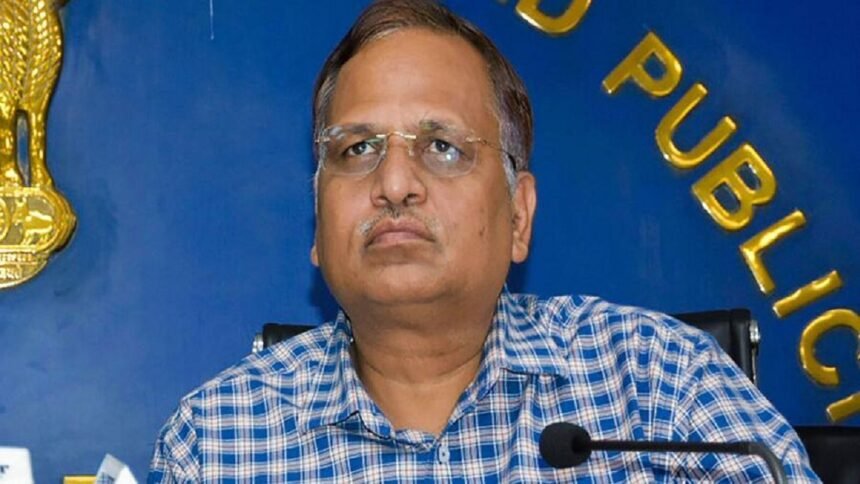The Supreme Court has granted interim bail to former Delhi minister Satyendar Jain for six weeks on medical grounds. This decision comes just a day after Jain was admitted to the ICU at Delhi’s Lok Nayak Jai Prakash Narayan (LNJP) Hospital following a collapse in the bathroom of Tihar Jail due to dizziness.
Jain’s health issues have been a cause for concern, as this is the second time in a week that he has required medical attention. Earlier, he was examined at Safdarjung Hospital for a spinal injury sustained from another fall in the jail’s bathroom, according to officials.
The Aam Aadmi Party (AAP) leader has been in Tihar Jail since his arrest by the Enforcement Directorate in May of the previous year. He is facing charges of money laundering, with the probe agency alleging that he laundered money through shell companies and used illegal funds to purchase land. Jain has consistently denied these charges, claiming that they are politically motivated.
Satyendar Jain was a prominent member of Delhi Chief Minister Arvind Kejriwal’s cabinet and held various portfolios, including health, home, and urban development. However, he resigned from his ministerial posts in January of this year while still in jail.
The Supreme Court’s decision to grant interim bail to Satyendar Jain is based on his deteriorating health condition and the need for appropriate medical treatment. This development will allow him to receive necessary medical attention outside the jail premises for the next six weeks.
The case against Jain will continue, and he will be required to appear before the court as and when necessary. The interim bail has been granted solely for medical reasons, highlighting the importance of ensuring the well-being of an accused individual during the legal process.
The decision by the Supreme Court underscores the significance placed on the health and medical needs of individuals in custody, regardless of the charges they face. It reflects the court’s commitment to upholding the right to health and providing necessary medical care to those in need, even while legal proceedings are ongoing.
